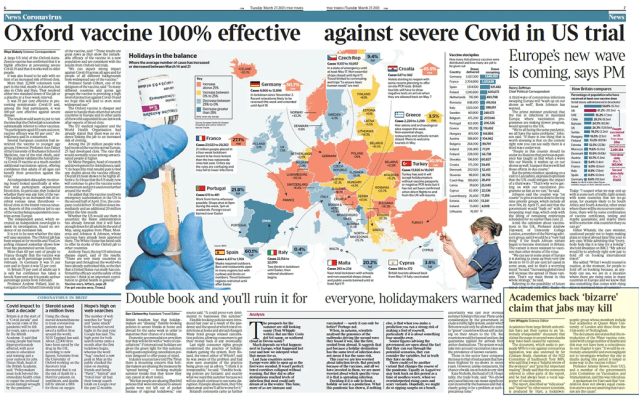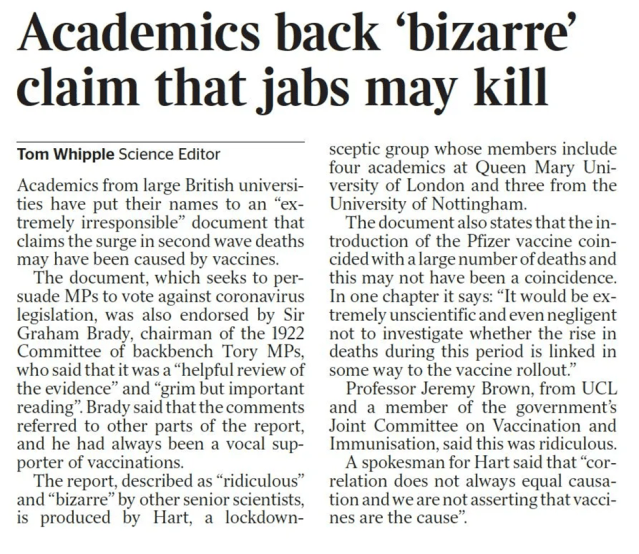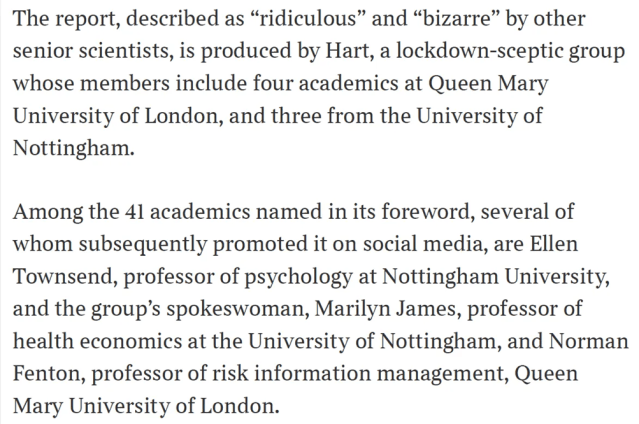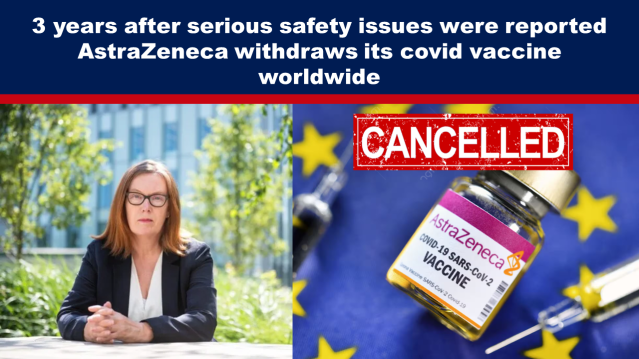3 years after serious safety issues were reported AstraZeneca withdraws its covid vaccine worldwide
The Oxford-AstraZeneca has withdrawn its Covid-19 vaccine worldwide. The decision to withdraw the vaccine was made on 5 March but came into effect on 7 May. It brings to an end the use of the injection and comes months after AstraZeneca admitted for the first time in court documents that it can cause “rare” and dangerous blood clots.
The Oxford-AstraZeneca injection was sold under the brand names Vaxzevria in Europe and Covishield in India.
As reported by The Telegraph on Tuesday, the pharmaceutical giant said its covid injection was being removed from markets for commercial reasons. The company reported a decrease in the demand for Vaxzevria due to emerging covid variant vaccines and initiated the global withdrawal of its covid vaccine on 7 May, following the increased availability of newer vaccines.
In response to AstraZeneca’s decision to withdraw Vaxzevria, the Serum Institute of India said on Wednesday that “from the outset, [it] had disclosed all rare and very rare side effects” of its Covishield vaccine in 2021.
Professors Martin Neil and Norman Fenton remind us that in March 2021 – four months after the mass covid injection campaigns began – the alarm bells of the harmful effects of the injections were already being rung while corporate media hailed the Oxford covid vaccine as “100% effective.”
Before we get to the two professors, a word of caution. A paper published in Nature Nanotechnology on Monday, the day before AstraZeneca withdrew its covid vaccine, shows that AstraZeneca may be withdrawing from the covid vaccine market but Oxford University is not.
It is claimed that covid is caused by the SARS-CoV-2 virus, a coronavirus. Before the covid era madness, it was known that there are seven coronaviruses that infect humans. Coronaviruses were first identified in the 1960s but have likely been circulating for centuries, causing common colds. It’s important to note that included in the seven that infect humans are three so-called “new” coronaviruses – SARS-CoV, MERS-CoV and SARS-CoV-2 – of which at least two are known to have nefarious origins. In an attempt to hide the “new” coronaviruses true origins it has been claimed:
- SARS-CoV, which caused the 2002-2004 SARS outbreak, is thought to have originated from bats, with the intermediate host being civet cats.
- MERS-CoV, which causes Middle East Respiratory Syndrome, is believed to have originated from bats, with the intermediate host being dromedary camels.
- SARS-CoV-2, which causes covid-19, is thought to have originated from bats, with the intermediate host being an unknown animal, possibly a pangolin or another animal.
Read more: Operation Warp Speed? Pfizer patented the spike protein for a coronavirus vaccine over 30 years ago
In a collaboration between the universities of Oxford, Cambridge and California Institute of Technology, researchers have developed a vaccine with a new approach called “proactive vaccinology,” where a vaccine is developed before the disease-causing pathogen even emerges. The vaccine, “Quartet Nanocage,” is expected to commence phase one clinical trials in early 2025.
According to Mint, the new vaccine functions by instructing the body’s immune system to identify particular regions of eight distinct coronaviruses, encompassing SARS-CoV-1, SARS-CoV-2, and several strains presently prevalent in bats, which hold the potential to cross over to humans and trigger a pandemic.
The University of Oxford’s Rory Hills, the first author of the report, said, “Our focus is to create a vaccine that will protect us against the next coronavirus pandemic and have it ready before the pandemic has even started.”
“We are also applying this technology to protect against other groups of viruses that can infect humans. All of this brings us closer to our vision of developing a library of vaccines against viruses with pandemic potential before they have had the opportunity to cross over into humans,” Hills said.
Now let’s remind ourselves of their previous attempt to develop and market a “safe and effective” coronavirus vaccine.
Let’s not lose touch…Your Government and Big Tech are actively trying to censor the information reported by The Exposé to serve their own needs. Subscribe now to make sure you receive the latest uncensored news in your inbox…
Vaccine Efficacy and Safety: A Timely Reminder of Our Early Warnings
By Professor Martin Neil and Professor Norman Fenton
With the formal withdrawal of the AstraZeneca vaccine, it’s appropriate to remind people of this double-page spread in The Times, March 2021, that hailed the AstraZeneca vaccine as 100% effective. But note the article highlighted bottom right on the double-page spread.

This is the article by Tom Whipple with the headline: ‘Academics back ‘bizarre’ claim that jabs may kill’.

Two of the four “Queen Mary University of London” academics were Norman and Martin. The online version of this article explicitly named Norman as one of the academics:

While we are proud that we did indeed raise the alarm about safety issues with the covid vaccines so early on, Whipple’s article was inaccurate in many respects as detailed HERE. Moreover, it was used as the basis for Norman’s Wikipedia entry to be hacked with him being labelled as spreading “covid-19 misinformation.”
Read more: How Wikipedia defames and delegitimises anybody raising concerns against the WHO narrative on Covid
While AstraZeneca may only have just been formally withdrawn, few are aware that general practitioners were no longer offering it in the UK as early as the end of May 2021 because of safety issues – you could still get it in principle but had to specifically request it. That was weeks before Sarah Gilbert got that standing ovation at Wimbledon for leading the AstraZeneca development.
Read more: AstraZeneca’s second most lethal batch
About the Authors
Norman Fenton is a Professor Emeritus of Risk Information Management at the Queen Mary University of London. He is also a Director of Agena, a company that specialises in risk management for critical systems. He is a mathematician by training whose current focus is on critical decision-making and, in particular, on quantifying uncertainty using causal, probabilistic models that combine data and knowledge (Bayesian networks). The approach can be summarized as “smart data rather than big data.”
Martin Neil is a renowned expert in the fields of Computer Science and Statistics. He is a full Professor at Queen Mary, University of London, where he is also the Director of the UKRI Centre for Doctoral Training in Safe and Trusted AI. His research interests focus on Bayesian modelling and risk quantification in various areas, including artificial intelligence, machine learning, and data science.
Together, the two professors author a Substack page titled ‘Where Are the Numbers’.
Featured image: Professor Sarah Gilbert, Professor of Vaccinology at the Jenner Institute (right). Source: The story behind the Oxford-AstraZeneca Covid-19 vaccine success, UK Research and Innovation, 30 November 2021





